

Biovie | Living and Organic Food for Everyone
Biovie, the strength of the living
As a true gateway to living and organic food, our goal is to provide quality products while sharing knowledge and skills around this lifestyle. In addition to supporting those who already practice it, what we also aim to do is help people who are starting this transition or who want to know how to become raw foodists.

Making organic and living food accessible to the greatest number of people
At Biovie, you will find a variety of healthy products at an attractive price on our online store. Equipment with a very good quality/price ratio to get you equipped. But also detailed information to better understand what you are buying as well as training to get inspired.
We want to enable everyone to easily learn or develop skills and new habits to bring more vitality to their plate. Whether you want to incorporate a bit more raw food into your diet, or aim for a 100% raw food diet. Because you have to start somewhere!
We refuse to think that living food is reserved for connoisseurs and people with a marginal lifestyle. Or that organic products are only accessible to those who can afford them.
Yes, what we want is also to break down preconceived ideas! By providing both raw or minimally processed products, resources, and training for tous.tes. And above all, at more affordable prices than one might think.
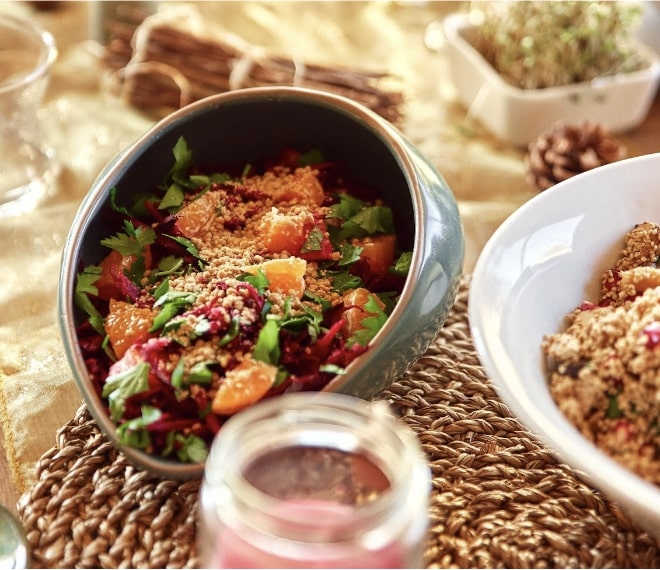
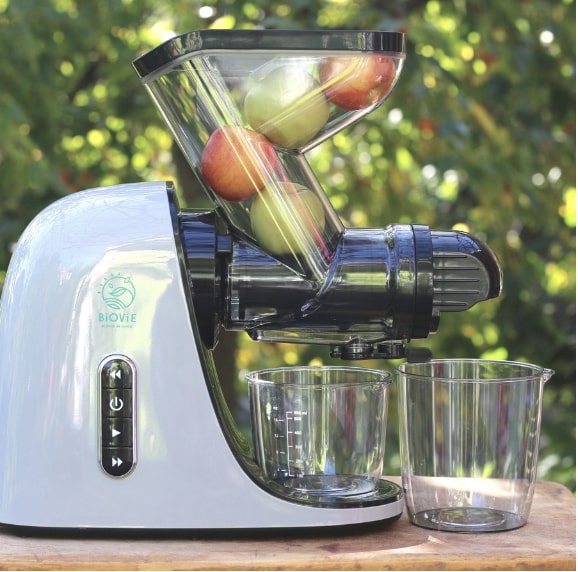
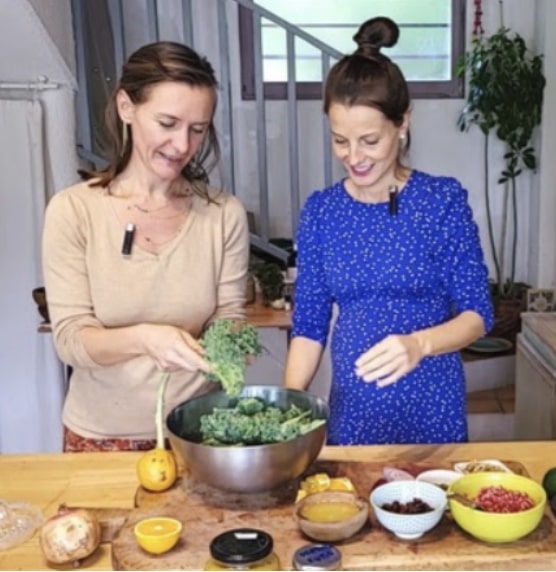

At Biovie, you will find a variety of healthy products at an attractive price on our online store. Equipment with a very good quality/price ratio to get you equipped. But also detailed information to better understand what you are buying as well as training to get inspired.
We want to enable everyone to easily learn or develop skills and new habits to bring more vitality to their plate. Whether you want to incorporate a bit more raw food into your diet, or aim for a 100% raw food diet. Because you have to start somewhere!
We refuse to think that living food is reserved for connoisseurs and people with a marginal lifestyle. Or that organic products are only accessible to those who can afford them.
Yes, what we want is also to break down preconceived ideas! By providing both raw or minimally processed products, resources, and training for tous.tes. And above all, at more affordable prices than one might think.




Discover living food through the story of Eric Viard and Biovie:

Why do we care about organic products?
In organic farming, farmers are required to adhere to a number of principles and agricultural practices, which include:

The use of natural fertilizers such as compost, manure, and green manure, rather than synthetic chemical fertilizers.

Crop rotation to improve soil fertility and reduce the risks of diseases and pests.

Ecological management of pests and diseases, which involves encouraging natural predators and using biological control products only as a last resort.

Maintaining biodiversity on farms, particularly by leaving grassy strips and hedges to provide a habitat for local wildlife and flora.

Respect for animal welfare standards, such as appropriate living conditions and a healthy, natural diet.

Organic farmers are required to implement agricultural practices that are respectful of the environment and health, but they are not responsible for specific results in terms of yields or crop quality. Additionally, organic producers are subject to strict standards regarding traceability and certification.
All of these practices are a sign of respect for the planet and living beings. Organic products are more nutritious, have fewer harmful effects on our health (due to fewer chemical residues), and help build a more sustainable agriculture that adapts to climate changes.

So why not 100% organic?
Organic sectors do not exist
The first reason is that sometimes the supply chains simply do not exist. This is the case with freeze-dried fruits from Thailand, which are not organic. When we approached our supplier, they simply told us that there was no organic durian supply chain in Thailand, which is still true.
So, we started this supply chain with the aim of connecting our supplier with organic producers near them, which is a painstaking task that takes time. Nevertheless, it is in progress, and we hope to one day be able to offer you an organic version of some of our freeze-dried fruits picked at maturity.
Organic quality without certification
In the same vein, other products follow organic recommendations without being certified, such as avocado honey, harvested in the middle of organic avocado fields.
In other cases, like seaweed tartare made mostly of certified organic seaweed, only certain condiments are not organic. Clearly, we could not have started with organic directly at the time, and currently, 100% organic remains difficult, particularly because of the additional cost.
At our place, you will find other quality criteria:

The maturity of products
The fresh and freeze-dried fruits we offer ripen on the trees and not in cold storage rooms.

The social aspect
This is a point on which we personally ensure, whether with our suppliers and their employees or with our own collaborators.
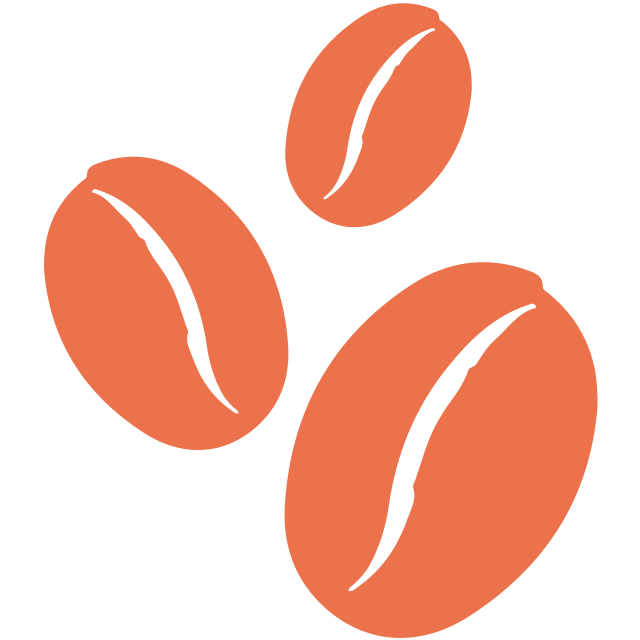
Raw quality
She is present throughout our entire range. Once again, with an exception that proves the rule for our faux coffee Lupi, which is roasted, but allows some people to quit real coffee, and we are convinced that this benefit outweighs the inconvenience of roasting.

A key player in organic and living food
Our commitment is confirmed every day with the trust of our customers and our partners.
Thanks to them, the company Biovie continues to thrive alongside them.
Sign up for our newsletter to discover reports, be informed about our promotions, participate in our contests, or receive our latest recipes.
Discover our training courses and online raw food courses as well as downloadable e-books and our exclusive webinars.

The Origin of Biovie

2005
Public training courses on living food with Dr. Brian Clement in France, organized by Eric Viard
2007
Creation of Biovie with the aim of translating and publishing the book "Living Cuisine for Optimal Nutrition." The book was initially published in the United States by Dr. Brian Clement, director of the Hippocrates Health Institute in Florida
Online marketing of EasyGreen automatic sprouters, an American brand created in 1996 and now fully owned by Biovie
2009
The book "Living Cuisine for Optimal Health" is published with 5,000 copies. The online business grows and diversifies
2015
Meeting with his wife Aurélie Viard, who brings all her artistic and creative expertise to the company. Significant development of the company around many organic products and exceptional superfoods found from all corners of the world
2020
The Biovie family grows and structures itself to be able to embark on long-term projects and shift mentalities: bringing living food to social networks and books with other publishers
2021
Biovie launches 25 new products. Linda Hardy and Morgane Miller represent the brand on social networks. We start a show "Qui l'eu cru" on Nutriradio
2022
Aurélie publishes her first book on seaweed with Marie Claire editions, in partnership with Bretalg, and we meet our customers at the must-attend Marjolaine organic fair in Paris.
2023
Launch of the Easygreen Sol, the only Low Tech autonomous sprouter in the world that operates without energy for a week. Aurélie publishes "Mes semaines toutes crues" with Marie Claire. Eric and Aurélie join the School of Living and Sustainable Food in Brussels as trainers and start giving lectures. Eric publishes his first articles in the professional journals Hippocrates and Kousmine
2024
Gallimard publishes the first book on seaweed co-written by Aurélie and Eric, receiving enthusiastic reception from the press. The magazine "Elle" features 4 recipes from the book. Launch of our two synergies of metabolic and digestive enzymes, the result of two years of research. Biovie opens the French version of the iconic Living Light Culinary Institute (USA) online school.
...And now
Biovie will significantly invest in education around enzymes, which are to the 21st century what vitamins were to the 20th century. Eric and Aurélie will strengthen the transmission of their expertise to further popularize what they have shared
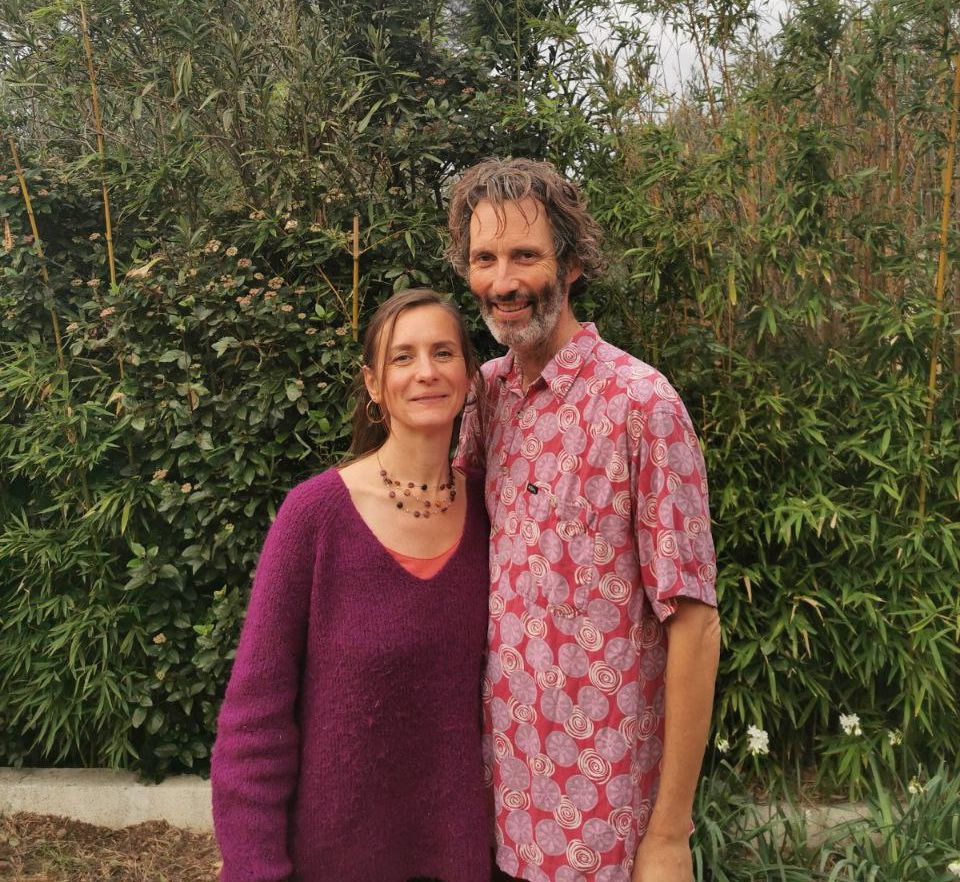
Éric and Aurélie Viard

Our values: People and the Environment
Biovie aims to be a family-run, activist company in the service of life. Our company proudly embodies its values throughout its entire chain of activities, while also promoting them to the general public.


Quality
We guarantee optimal quality for each of our products. It is our priority. The majority are certified organic or adhere to ethical processes when organic is not possible or does not yet exist (example: freeze-dried durian does not exist in organic form).

Authenticity
We are the first consumers of the products we sell and the first users of the devices we manufacture, such as the Easygreen sprouter, the JuiceMeUp extractor, or the MixMeUp blender. This guarantees that we offer items whose qualities have been evaluated and verified by us, and whose strengths and weaknesses we personally know.

Traceability
We systematically meet with each of the producers and manufacturers of our products. Except during COVID, we spend several months a year traveling. This way, we personally verify their origin and production conditions, so we can offer them to you with complete confidence, and this, in addition to our organic certification with Ecocert.

Ethics
We personally ensure, or through third-party programs, that our products are obtained under dignified working conditions for employees. And the well-being of Biovie employees is also one of our priorities.
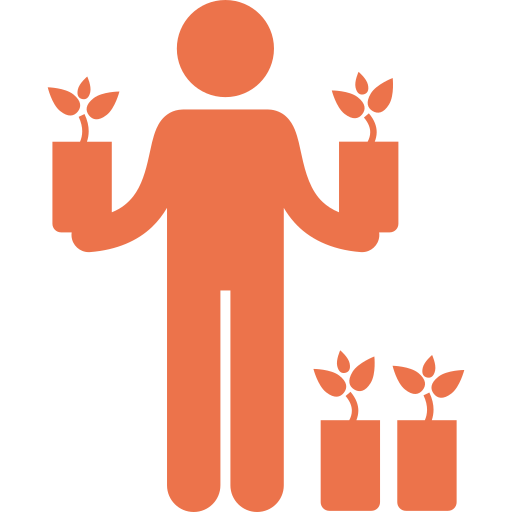
Fair Trade
By reducing intermediaries, we guarantee the fairest price, from producer to consumer. Whenever possible, we prioritize French or European products, and when we import, we favor fair trade (such as for tiger nuts or coconut). As much as possible, we ensure that the economic added value created from the processing or packaging of our products remains in the country of origin. For example, we freeze-dry our fruits picked at maturity in Thailand on-site rather than importing them and freeze-drying them in France.

Eco-responsible approach
Since 2007, we have paid particular attention to ensuring that our activity has the least possible environmental impact. From the mode of transport, the choice of recycled or bio-based plastic materials to the least impactful product packaging possible, our choices are guided by respect for the environment. However, some aspects of our activity remain improvable, such as the use of recycled plastics, for example, where we encounter the non-existence of bio-based or recycled plastics approved for food contact. Nevertheless, we strive to improve our processes and are receptive to constructive criticism.

Listening to our customers
By staying attentive to your needs, we continuously adjust our offerings. For example, by providing references in our store based on your suggestions, or by adapting their packaging volume according to your feedback. Some of our products have been suggested to us by pediatricians, therapists, doctors, or customers. Feel free to make a suggestion!

Innovation
When a product remains difficult to find despite existing demand, we are not afraid to create new supply chains. We have done this, particularly for fresh coconuts, tiger nuts, and even whole aloe vera leaves, which we were the first to introduce in France.

Committed Editor
To print our books as committed publishers, we have chosen for the past 15 years the most ecological and social printing company in France: Pure Impression. It uses vegetable-based inks, operates on solar energy, practices gender-equal pay, and uses electric vehicles.

Innovative manufacturer
We are always looking for the most environmentally friendly solution in the manufacturing of our devices, favoring recycled plastics, bio-based plant-based plastics with mineral or plant fillers, or plastics combining both solutions when possible for food contact.



